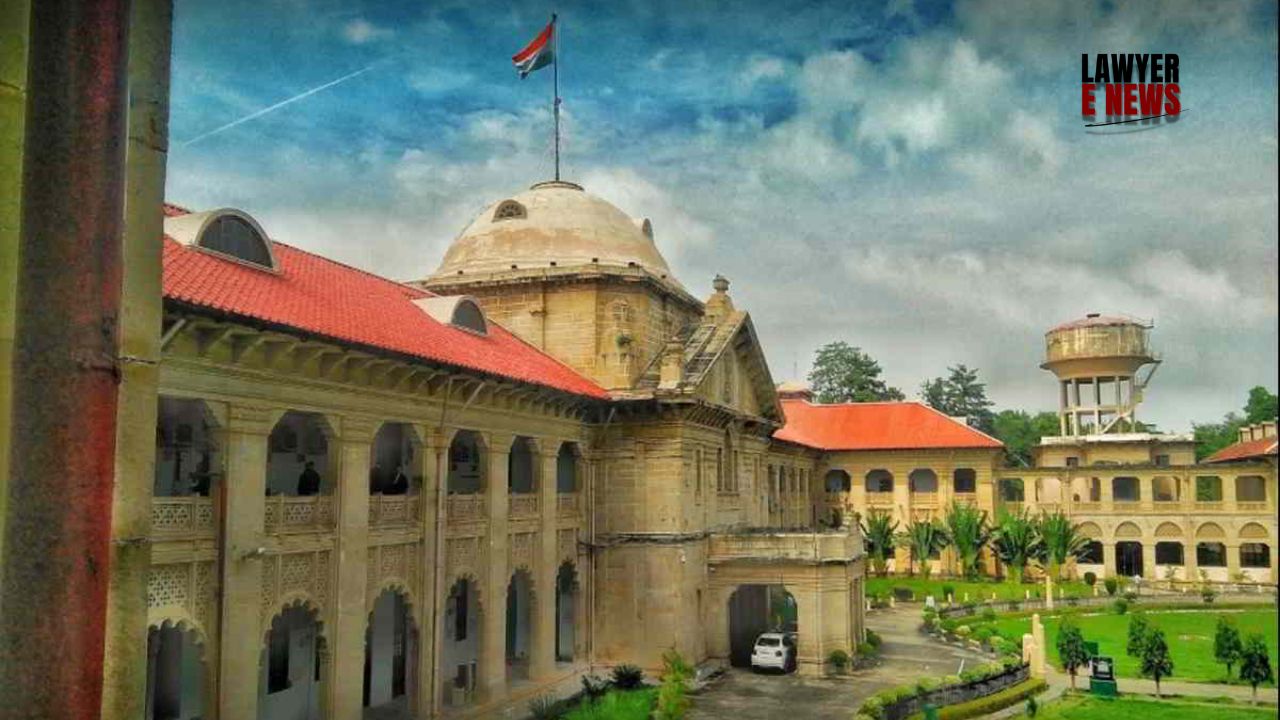-
by Admin
15 February 2026 2:36 AM



The Allahabad High Court recently dismissed a group anticipatory bail application filed by 13 individuals implicated in a violent midnight attack involving assault and firearms. The court underscored that anticipatory bail is an extraordinary relief, granted primarily in cases of false implication, not as a protection from legitimate proceedings in serious crimes. The decision considered the gravity of the alleged offenses, the use of firearms, and potential threats to public order.
The applicants, including Mukesh and several others, were charged under Sections 147 (rioting), 148 (rioting with deadly weapons), 149 (unlawful assembly), 452 (house-trespass after preparation for assault), 307 (attempt to murder), and other sections of the IPC. The accusations arose from an incident on April 21/22, 2024, following a minor dispute between children at a family gathering, which had ostensibly been resolved. However, later that night, the applicants allegedly assembled near the informant’s house and assaulted the informant’s family, using sticks, iron rods, and firearms, leading to multiple injuries, including two gunshot wounds.
Grant of Anticipatory Bail in Serious Offenses: The applicants argued for anticipatory bail on grounds of alleged minor involvement, absence of criminal history, and claims of generalized allegations. However, the prosecution highlighted the severity of the offense, including firearm injuries, and contended that granting anticipatory bail could jeopardize public safety.
Constructive Liability and Unlawful Assembly: The prosecution contended that the applicants were jointly liable under Sections 147, 148, and 149 of the IPC, as the group acted with a shared intention to harm.
Balancing Right to Liberty with Public Order: The court evaluated the right to liberty against the need for public order and safety, referencing recent Supreme Court rulings that emphasize balancing individual freedoms with community welfare in anticipatory bail decisions.
The High Court stressed that anticipatory bail is an extraordinary relief that should not be granted in cases involving serious offenses or threats to public safety. Justice Chauhan observed:
"Anticipatory bail is not meant to shield those facing serious allegations from legitimate legal proceedings. Given the presence of gunshot injuries and the gravity of the offense, anticipatory bail is unwarranted."
The court underscored that anticipatory bail is appropriate only in cases where there is a prima facie case of false or frivolous prosecution. Here, the evidence, including injuries and medical reports, substantiated the seriousness of the offense, and the applicants failed to demonstrate exceptional circumstances justifying anticipatory relief.
The court examined the applicability of Sections 147, 148, and 149 IPC, establishing constructive liability. Given the applicants’ collective assault in the middle of the night and the injuries inflicted, the court inferred shared intent among the accused. Justice Chauhan stated:
"The midnight assembly of multiple accused, armed with weapons, outside the informant’s house indicates a premeditated attack. The provisions of Sections 147, 148, and 149 IPC apply, as the group’s conduct demonstrates a common objective to assault the informant’s family."
The court found that the applicants’ collective behavior, despite some having allegedly less direct involvement, warranted joint liability due to their presence at the scene and participation in the group attack.
Referring to recent Supreme Court precedents, the court emphasized the need to balance individual liberty with public safety when assessing anticipatory bail applications. The court noted:
"While personal liberty is fundamental, it must be weighed against public safety, particularly in cases involving collective violence and use of firearms. The applicants failed to demonstrate exceptional circumstances or harassment to justify anticipatory bail."
Justice Chauhan highlighted that granting anticipatory bail in such cases could undermine public confidence and disrupt law and order, especially in a rural community setting where such acts may cause public disorder.
The Allahabad High Court dismissed the anticipatory bail applications, noting that the applicants failed to show any extraordinary grounds justifying relief under Section 438 Cr.P.C. The court emphasized that anticipatory bail in such cases would not serve justice and might adversely impact public safety and the complainant’s rights.
"In view of the above, the present anticipatory bail applications lack merit and are accordingly dismissed."
Restrictive Approach to Anticipatory Bail in Violent Crimes: The court reaffirmed that anticipatory bail is not meant for shielding those facing serious allegations, especially when public order is at stake.
Constructive Liability in Group Assault Cases: In cases of collective assault with shared intent, courts may impose joint liability under Sections 147, 148, and 149 IPC, even when individual roles vary.
Balancing Liberty with Public Safety: The judgment reflects a cautious approach in prioritizing public safety over personal liberty in anticipatory bail decisions for violent incidents.
Date of Decision: November 8, 2024
